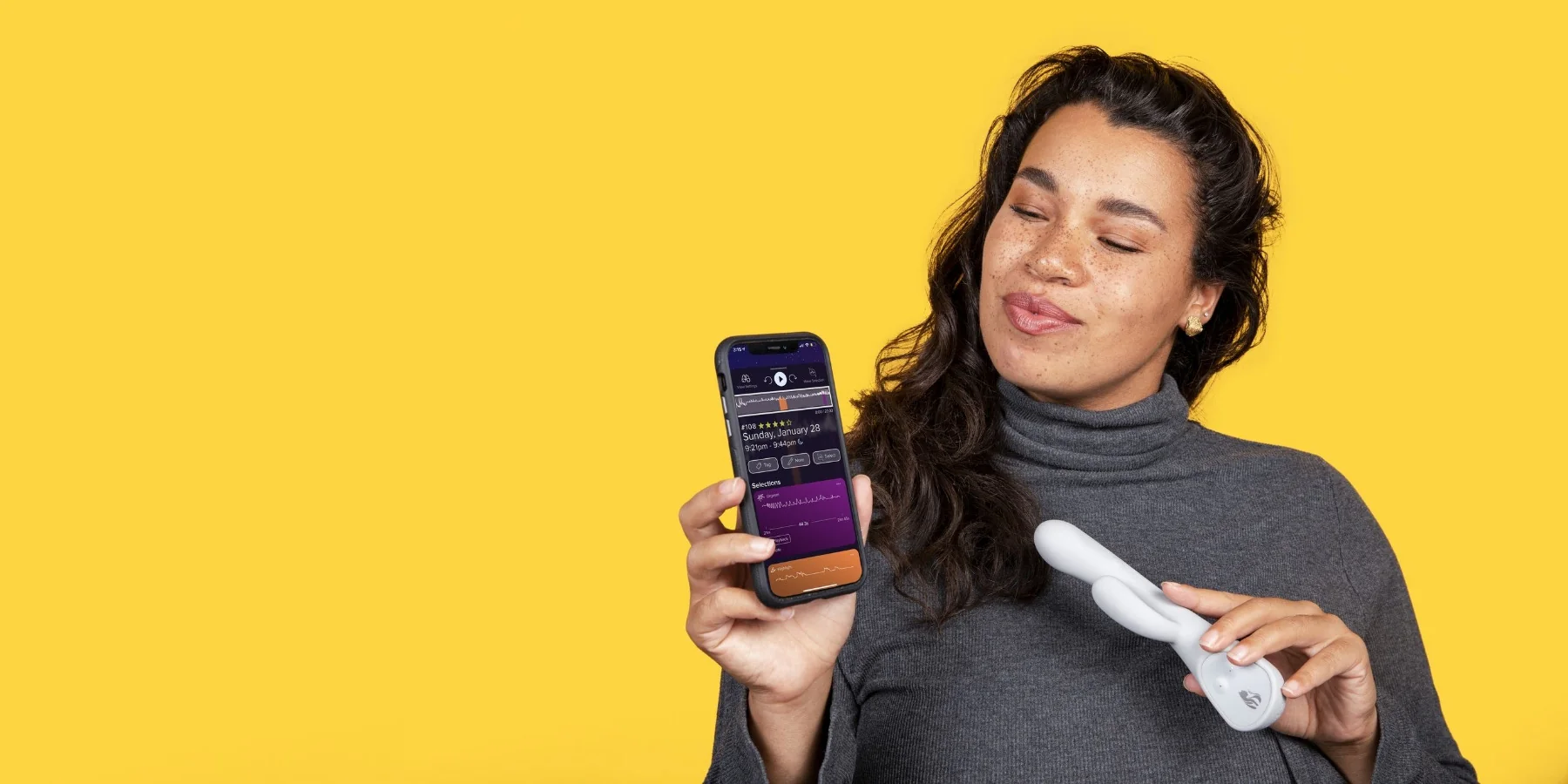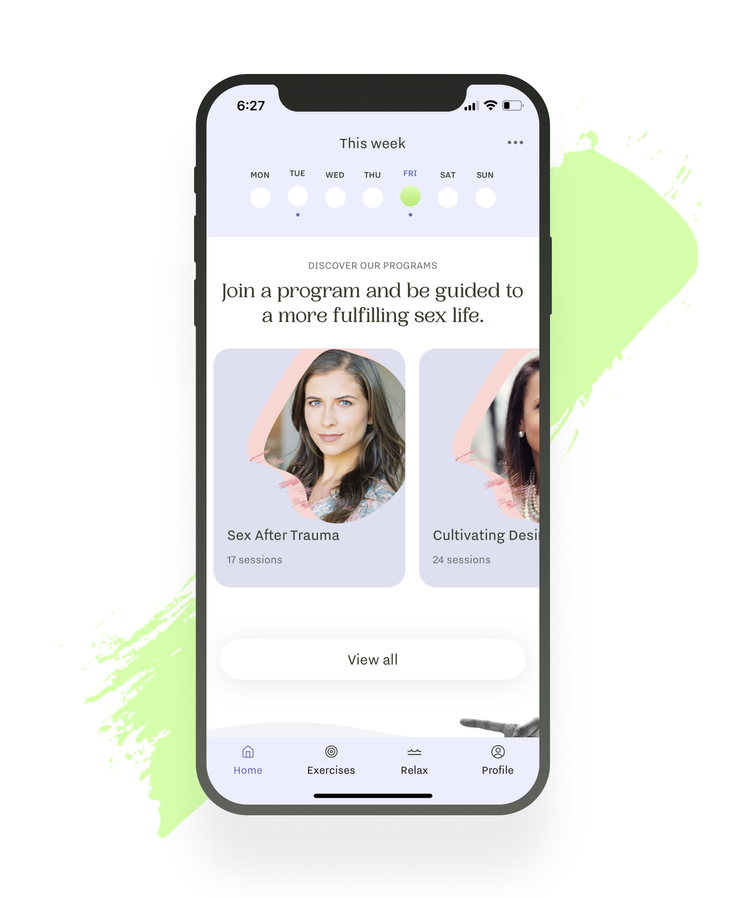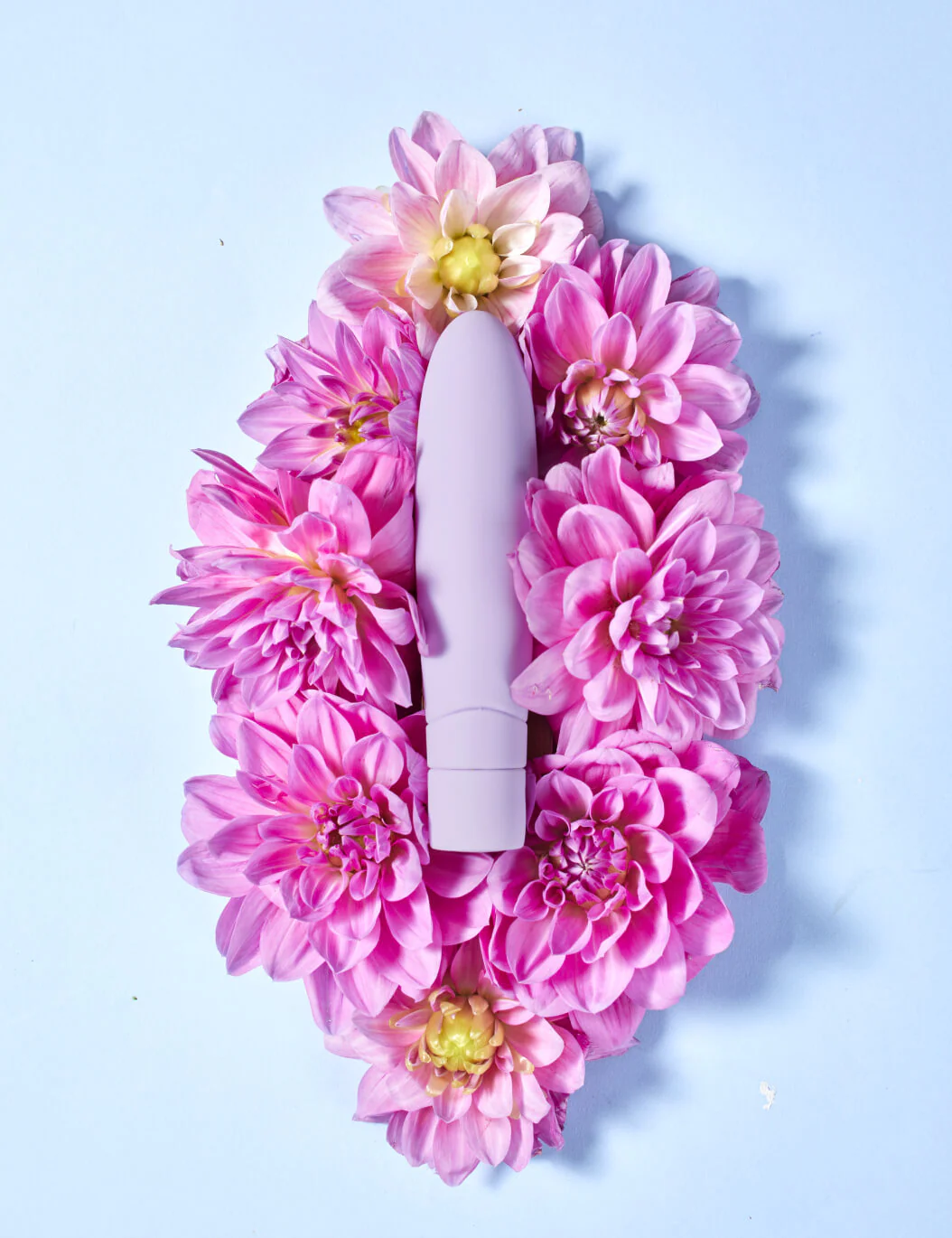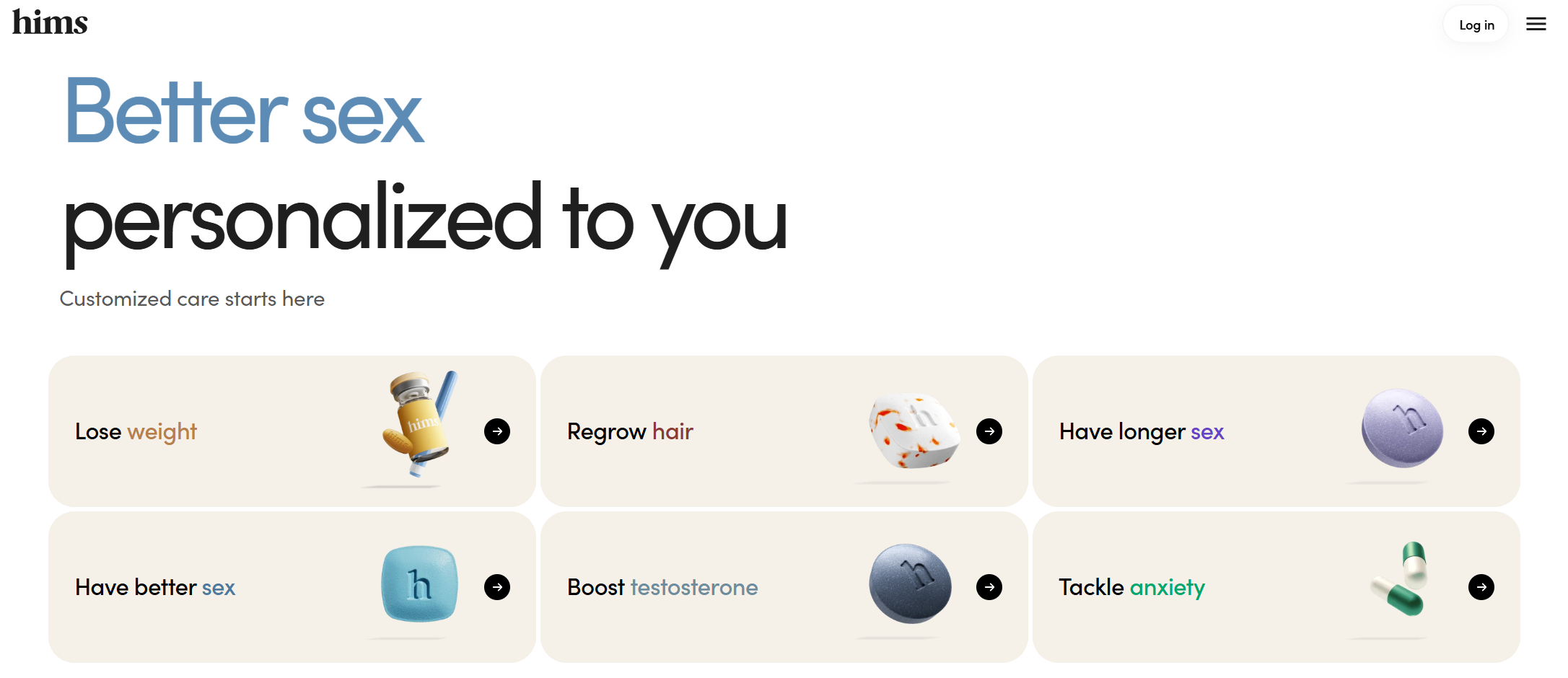S-E-X. Growing up, sexual wellness was a forbidden topic. Products were hidden away in windowless adult bookshops or erotica shops in the basements of shady buildings.
Sexual wellness has come a long way. And it’s about time.
What was once whispered about has entered the mainstream, now discussed in the same breath as sleep, nutrition, and fitness. Reports indicate that 74% of global consumers view sexual wellness as part of their overall health routine, with the sex tech market projected to reach $110 billion by 2030.
The driver behind this shift is clear. Consumers are reframing intimacy as a core component of well-being, while technology is providing the tools to legitimize, personalize, and normalize pleasure.
For marketers and innovators, this convergence brings both opportunity and responsibility. Here are four ways technology is reshaping intimacy in an age of normalization.

From Curiosity to Confidence: The Rise of Wearables and Trackers
Data gives consumers confidence. Nearly 35% percent of U.S. adults already use a wearable to track fitness or sleep, and the same demand for measurable insights is entering sexual health. By offering tangible metrics, brands reduce stigma and position intimacy alongside other wellness routines.
Who’s doing it well:
• Lioness (U.S.): A smart vibrator that uses biofeedback to provide scientific insights into pleasure. It reframes intimacy as data-driven self-care. Find out how caffeine or stress impacts your orgasm.
• Elvie (U.K.): Their pelvic floor trainer and breast pump have attracted over $100M in funding and strong retail traction by positioning intimate health as mainstream wellness. The Elvie Trainer helps you visualize your pelvic floor while guiding you through each exercise.
• Oura (Finland/U.S.): While best known for sleep tracking, Oura’s cycle and reproductive health features show how wearables can bridge sexual health with everyday wellness.

Coaching Intimacy: AI as a Private Guide
Guidance is in demand, but stigma keeps many consumers away from traditional providers. A survey of 1,500 Americans aged 18 to 44 found that 90% felt their sex education didn't prepare them for real-world experiences. Specifically, over 40% of women and 47% of men felt unprepared for their first sexual encounters, and 41% of both genders felt ill-equipped for communicating with sexual partners.
AI-enabled coaching provides a discreet path to learn and grow, framing intimacy as a skill rather than a taboo.
Who’s doing it well
• Ferly (U.K.): Uses cognitive-behavioral therapy techniques and AI-driven audio coaching to help women overcome sexual anxiety.
• Rosy (U.S.): Focused on midlife women treating sexual problems, Rosy has topped 270,000 downloads offering telehealth integration and physician-backed programs. The femtech startup has raised over $4.2 million and benefits from referrals by more than 8% of the nation’s Ob/Gyns.
• We-Vibe (Canada/Global): A pioneer in connected intimacy devices, We-Vibe integrates app-based controls and partner connectivity, allowing couples to personalize their experiences even at a distance. As part of the Lovehoney Group (whose vision is to lead the world’s pursuit of sexual happiness), the brand benefits from strong financial support and a global distribution network, making it one of the most commercially successful players in the sexual wellness technology field.
Designing for Wellness: Sustainability at the Core

Sustainability is no longer a nice-to-have. Three in four Gen Z consumers say eco-friendly practices influence their purchase decisions. In sexual wellness, this expectation is amplified. Consumers want body-safe, planet-conscious products that align with their broader lifestyle values. Packaging and product design that feel modern, eco-conscious, and approachable help elevate intimacy products from novelty to wellness essentials.
Who’s doing it well
• Dame Products (U.S.): is a women-founded sexual wellness brand dedicated to closing the pleasure gap through research-driven, body-safe designs. Their collection of vibrators, lubricants, and intimacy products are made with medical-grade, eco-friendly materials and developed in collaboration with doctors and users alike.
• Smile Makers (Singapore/Global): Design-led, approachable products have helped them scale across Asia and Europe, especially among first-time, curious buyers. Products, like “The Whisperer”, are made from FDA-approved, body-safe silicone.
• LELO (Sweden/Global): Known for its luxury positioning, LELO combines body-safe materials, elegant design, and longevity in its products. With a presence in more than 50 markets worldwide and a reputation for premium quality, LELO has proven that sustainability and design can elevate intimacy products from niche novelty to lifestyle essentials.
Intimacy as Healthcare: The Telehealth Effect
Stigma and access issues continue to be barriers. A survey of 3,015 adults aged 40-74 who are sexually active and in committed relationships, where at least one partner faces sexual health concerns, revealed that 64% feel their sex life impacts their overall life satisfaction. Yet, only 38% are truly satisfied with their sex lives. Many avoid discussing sexual health problems with their doctors due to embarrassment or resignation, with 26% not talking to their healthcare providers about these issues.
Digital healthcare platforms offer a discreet, credible way to address sexual wellness needs, reframing intimacy as part of holistic healthcare.

Who’s doing it well:
• Hims & Hers Health (U.S.): With a market cap over $12 billion, Hims & Hers has grown by focusing on stigmatized health conditions (hair loss, eating disorders, and sexual health) using discreet telehealth and approachable branding.
• Maven Clinic (U.S.): Focused on women’s health, Maven includes sexual health in its virtual care model. Its $1.7 billion valuation reflects investor confidence in holistic care.
• Wisp (U.S.): Offers discreet prescriptions for sexual health conditions, scaling quickly through consumer demand for privacy and convenience. Wisp leverages a network of partner pharmacies and an online consultation system to make this possible.
Key Takeaways
• Normalization drives growth: Positioning intimacy as part of overall wellness unlocks new demographics and reduces stigma.
• Technology builds legitimacy: Wearables, AI, and telehealth give intimacy the same credibility as other health metrics.
• Consumers expect alignment with values: Inclusivity, discretion, and sustainability are now minimum requirements.
• Education is essential: Brands that combine innovation with accessible, science-backed education are best positioned to win.
Closing Thoughts
At Compass Marketing, we see the future of sexual wellness being shaped by brands that normalize intimacy while innovating with purpose. The companies that thrive will not only deliver effective products but also influence cultural change, making sexual wellness an integrated and trusted part of everyday health. Our team helps our business partners identify these opportunities, uncover consumer insights, and craft strategies that position them to lead in this evolving space.

Annette is skilled at identifying growth opportunities and successfully guiding products from concept to launch. At Compass, she advises leading brands and category disruptors in the health & wellness, personal care and digital health sectors.
See All Works